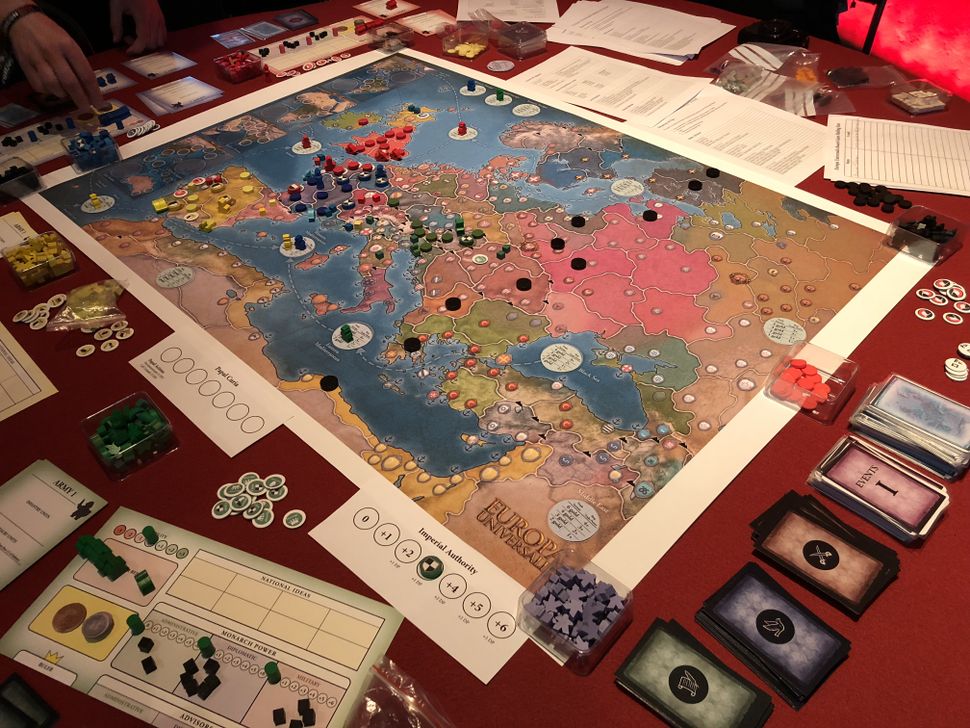


Your armies can also be commanded by the numerous, and we're talking Carl Sagan kind of numerous, fictional and historical commanders that you'll recruit throughout the game. Even so, your units will suffer attrition and demoralization regardless of how well you take care of them. Monthly maintenance costs and the protection of supply lines are key factors in keeping your armies in top fighting condition. Your technology level also influences the effectiveness of your troops. You have variable costs and time of recruitment depending on world conditions and your society's orientation and developmental level. But while the unit list is sparse, the way that the units interact with and respond to the world is amazing. There are only six units available - on land you have infantry, cavalry and artillery and on the ocean you have galleys, warships and transports. The military side of things is a little simpler than most strategy fans might be used to, at least on the surface. And sliding your armies and fleets around the map gives you a real feeling of tabletop action. It's got a game board like feel that's perfect for this kind of game. And while the flat 2D game board may put some style-over-substance gamers off, I think it looks great. Mission mode invites you to conquer specific territories on the game board. In Conquest you're asked to take over a set number of provinces before your enemies. In Power Struggle the side with the most Victory Points is the winner. But there are some specific scenario types that put victory in absolute terms. The point of the game is to survive and prosper - how you get there is your own problem. Like the best empire games, Europa doesn't really have a set goal (although many of the scenarios have some complicated victory conditions). But you'll also have to adhere to a religious philosophy, invest in new technologies and take advantage of new exploration. You'll build armies, manage your economy and negotiate the diplomatic opportunities that come your way. The 75 or so total countries in the game can be controlled by either you or the AI (although most games will only focus on a few key players). Each nation is made up of several smaller regions so the borders between countries will shift and ebb a bit as the game goes on. The game world (which is a recreation of our world) is divided into over 700 separate provinces. Although you can pause the game if you really feel things are getting out of hand. And rather than going with a system of focus points (in the manner of the upcoming Master of Orion game), the real time gameplay keeps you sweating. Trying to set your priorities is crucial. This real-time focus more accurately recreates the pressures and uncertainties of real monarchs (I was for a time ruler of a small duchy in the Apennines). You'll control the fate of every facet of your empire with a big clock ticking right in front of your face. Of course you can't and one of the real challenges of Europa is that it isn't turn-based. That's like 75 times the length of this preview.Ī game with this much going on has got to be turn-based, right? I mean, you can't be priest, diplomat, general, statesman, treasurer and tyrant all at once, right? Not all over the world at least.
#What is the point of a royal marriage europa universalis 5 manual
I mean the manual itself is over 75,000 words. In this case it looks like Europa Universalis is at least detailed enough to make it. Having the chance to fight through the religious wars of the European continent and eventually set out to establish new colonies in the New World, the Orient and Africa is damn hard to resist. Not only do you have the classic conflicts of Church and State, but you've also got a conflict between the European nations themselves that spans the whole globe. This has always been one of the most interesting periods in history as far as I'm concerned. The game begins in 1492 during the Age of Discovery and ends 300 years later as Napoleon rises to power.


 0 kommentar(er)
0 kommentar(er)
